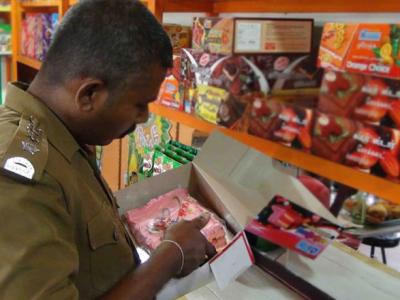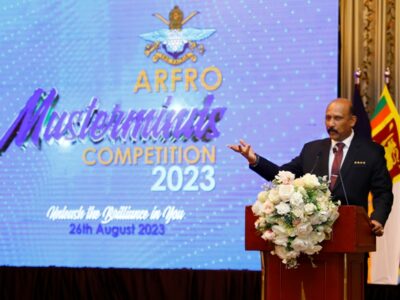(COLOMBO, LANKAPUVATH) –Sri Lanka’s agricultural productivity lags behind other South and East Asian countries and the World Bank has financed the Agriculture Modernization Project to close the gap through diversification, commercialization and value addition, the World Bank Country Director for Sri Lanka and the Maldives Dr. Idah Pswarayi-Riddihough said.
The World Bank Country Director says the considerable potential in the agriculture sector to contribute to the economy of Sri Lanka and to enhance the livelihoods of rural households which are dependent on farming is tremendous and support to the agriculture sector is therefore, an important priority for the government and for the World Bank.
Dr. Pswarayi-Riddihough expressed these views addressing a ceremony held to sign agreements with the approved applicants of the World Bank Project on Agricultural Innovation under the patronage of Prime Minister Ranil Wickremesinghe at the Water’s Edge Hotel, Battaramulla on Tuesday (15).
Sri Lanka government and selected Agri-businesses signed the first Grant Agreements under the matching grants program of the Agriculture Sector Modernization Project.
Speaking at the event the World Bank Director said instead of its perception as a declining sector, the agriculture has the potential to contribute significantly to Sri Lanka’s aim of becoming a competitive and inclusive upper-middle income country.
Dr. Pswarayi-Riddihough pointed out that countries such as Thailand and Vietnam have become major players in global agriculture markets, exporting the types of products that Sri Lanka also can produce competitively such as shrimp, fresh vegetables and fruit.
However, to compete on a global scale, Sri Lanka’s agriculture will need more than public investments, Dr. Pswarayi-Riddihough explained. “It will need to increase private investment in the sector; it will need to make reforms that will increase value addition to its produce,” she said.
The World Bank official also pointed out the need for a conducive policy framework and the need for labor and capital markets to become more dynamic to better serve the economy.
Congratulating the matching grant winners, the World Bank director said the matching grants bring closer the relationship between the producers – the farmers; and the market – the private sector who are demonstrating their willingness to make this partnership work by matching the first grants approved with more than $10 million additional investment into the sector.
She noted that agriculture is held back by an outdated land administration system and the fragmentation of plots which prevents the optimal allocation and use of land and farmers need to have better access to new technologies – such as advanced irrigation systems, improved crop varieties and better water and crop management skills.
“Improving agriculture policy, legal and regulatory frameworks based on research and evidence in an open and transparent manner would not only stimulate accountability but also help the sector to create the space to attract Foreign Direct Investments that would help modernize the agriculture sector,” the World Bank official emphasized.
The Agriculture Sector Modernization Project is financed by a $125 million Credit from the International Development Association of the World Bank, with additional grant of €25m to be provided by the European Union.
The development objectives of the project are to support increasing agriculture productivity, improving market access, and enhancing value addition of smallholder farmers and agribusinesses in the project areas.
The project will benefit smallholder farmers by attracting private sector investment to increase their competitiveness making them more attractive business partners for larger producers and creating more jobs and better futures for rural communities.




